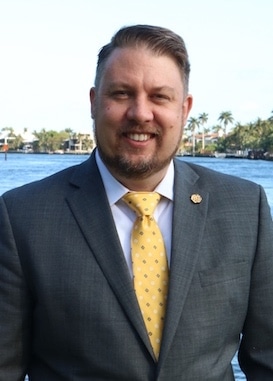
There is presently a societal clash occurring over issues of inclusion in the fields of science and technology. Some advocates believe that all people should be equipped and encouraged to participate in making our scientific and technological futures brighter. Others believe that religious people should be excluded altogether.
A couple of weeks ago, I wrote an OpEd for The Christian Post entitled Why the March for Science Should Concern Christians. The point of the article was to critique the Christian Church universal because I believe that it has failed to properly validate vocations in science and technology. My use of the word “validate” was in accordance with Merriam-Webster’s definition of the word—“to recognize, establish, or illustrate the worthiness or legitimacy of” something. I chose the word because it affirmed the marchforscience.com organizers’ statement, which articulated that the event was “about the very real role that science plays in each of our lives and the need to respect and encourage research that gives us insight into the world.”
Certainly, the nuances surrounding the March for Science event are more complex than just that one statement. I am not denying that fact but that isn’t my larger point. My point is simply that the Church needs to more fully live into its responsibility to nurture people who are called into science or tech related vocations. This is not validation from a position of authoritarianism. It is validation that stems from a desire to care and support people so that humanity and all of creation will flourish.
The challenge though is that many are choosing not extend that same grace to other people. Specifically, many science advocates want to exclude religious people from inclusion into scientific and technological fields. As someone who has sought the inclusion of all people into these conversations I often am exposed to folks who seem to have an axe to grind with organized religion, particularly Christianity.
For instance, a few of the responses to my suggestion that Christians should support scientists and technologists were:
“Christianity has never saved the world and in fact has contributed to amazing crimes on humanity.”
“Religion in general has failed, not just Christianity. More people wake up every day and realize they no longer believe in the
omnipotent. Humanity doesn’t need any religion to thrive.”
“For starters, some people need the fear of punishment or the promise of reward in the great hear after to have a complete life.
For them reality is determined by a very narrow view that is rooted in an antiquated philosophy. Some people need the fear of
punishment to act decent towards humanity, and some people use the promise of salvation to be simply rotten. I don’t think
Christians should really concern themselves with science or people’s view of science.”
“Christianity has committed many atrocities throughout the centuries it has only been helpful in giving hope, but it is not the
only thing that can provide it. So if you believe that the world needs to advance I suggest that you take a step back and look at
what has contributed to humanity the most. And then get working on it.”
“What a way to completely miss the point of the marches. People like you are actively attacking the sciences by cutting funding,
calling science a liberal conspiracy, and much, much worse. Until and unless your team understands that we’re simply trying to
figure out how the universe works, regardless of how it got here, and get on board with that, we’ll continue to mock and ridicule
you for your utter inability to grasp even the most basic points of reality.”
“God didn’t raise living standards, science did. Religions didn’t create a better world, science did — Humans did. Humans did it
all through blood and sweat. Through conflict, data, rational analysis and compromise, we (all humanity) learned what worked.
Religion has had almost 9 thousand years to find a formula to improve human life. Mostly in that time it was used as a
justification of ruling elites for THEIR power.”
“Keep Science and Religion Separate”
And last but not least: “(Expletive) Religion”
These types of comments are not rare when I publically advocate the possibility that science, technology, and theology can benefit one another. Add on a countless barrage of character attacks and unwarranted criticism regarding my vocation as a pastor, and it is easy for most to see that there are folks out there who do not want religious people anywhere near science and technology.
But this is precisely where I disagree with my critics. I believe that every human being should have the opportunity to help advance and steward scientific and technological progress and development toward positive results. I think that, to maximize our technological potential as humans, we need everyone who is willing to be included in that stewardship goal. For me, that also includes the 80+% of the world’s population that self-identifies as religious.
So, the great question that will radically shape our technological future remains: What kind of scientific and technological world will you choose to advocate living in? A world that excludes religious people, or one that includes them?
As featured in the Christian Post






























rotten religion deserves all the criticism from all schools of thought, our failure is to present the thrill of visionary progressive social justice values with the fire of a teilhardian mysticism in a language that the hungry billions can attach to. we need to unwind the poetry and science of teilhard and deliver them in appropriate packages.
great work, blessings